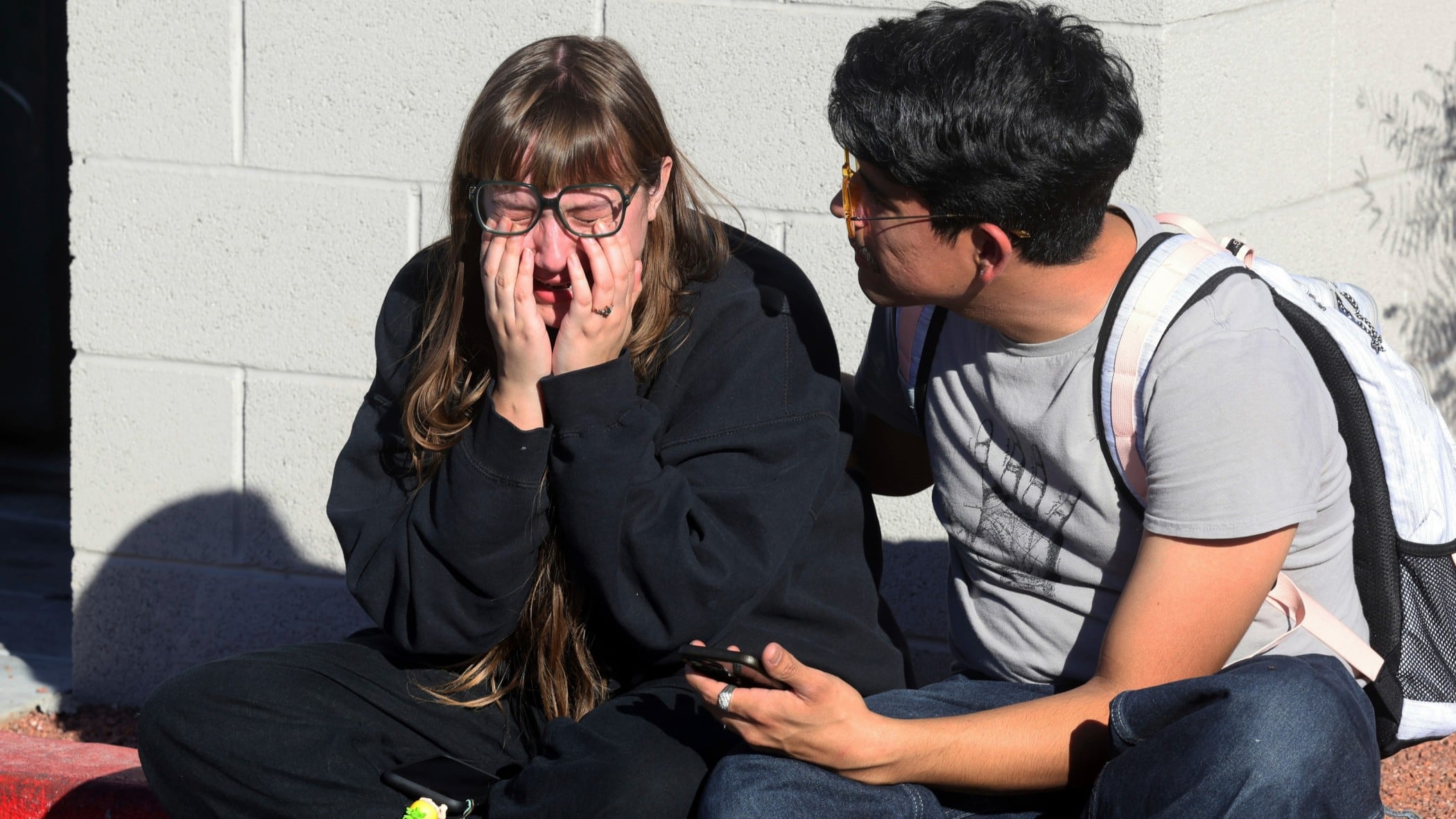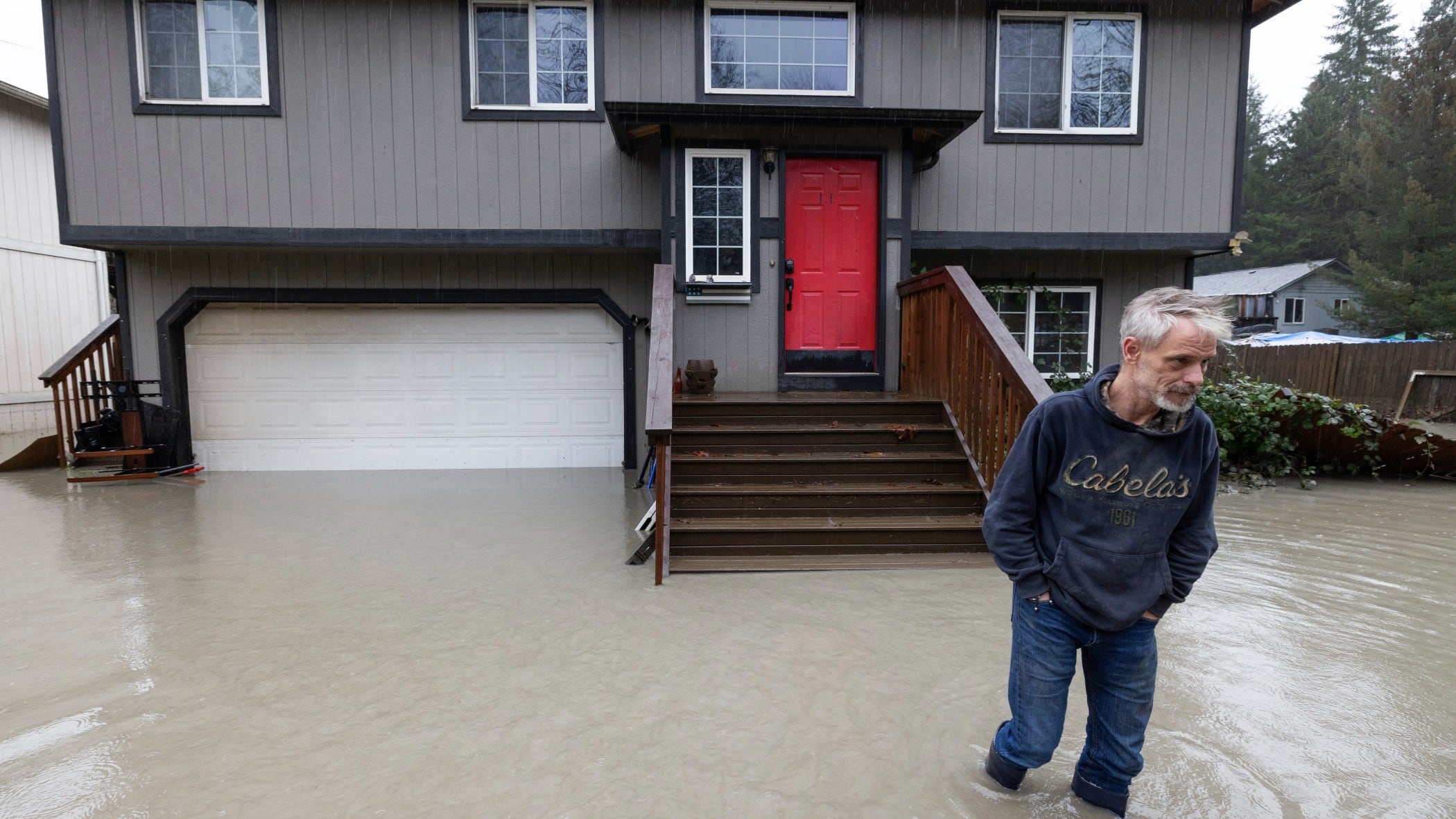Israeli airstrikes hit two refugee camps in the central Gaza Strip on Sunday, killing scores of people, health officials said. The strikes came as the U.S. keeps urging Israel to take a humanitarian pause from its relentless bombardment of Gaza and rising civilian deaths.
U.S. Secretary of State Antony Blinken traveled to Ramallah in the West Bank for a previously unannounced meeting with Palestinian President Mahmoud Abbas. Blinken later flew to Baghdad for talks with Iraqi Prime Minister Mohammed Shia al-Sudani. On Saturday Blinken met with Arab foreign ministers in Jordan, after holding talks in Israel with Prime Minister Benjamin Netanyahu, who insists there could be no temporary cease-fire until all hostages held by Hamas are released. He was wrapping up the grueling Middle East diplomatic tour Monday in Turkey. President Joe Biden suggested that progress was being made on the humanitarian pause.
The Palestinian death toll in the Israel-Hamas war surpassed 9,700 with more than 4,000 of them children and minors, according to the Hamas-run Health Ministry in Gaza. In the occupied West Bank, more than 140 Palestinians have been killed in violence and Israeli raids.
More than 1,400 people in Israel have been killed, most of them in the Oct. 7 Hamas attack that started the fighting, and 242 hostages were taken from Israel into Gaza by the militant group.
Roughly 1,100 people have left the Gaza Strip through the Rafah crossing since Wednesday under an apparent agreement among the United States, Egypt, Israel and Qatar, which mediates with Hamas.
U.N. Agencies: Cease-Fire Now
The heads of 11 U.N. agencies and six humanitarian organizations issued a joint plea for an immediate humanitarian cease-fire in Gaza, the protection of civilians, and the swift entry to Gaza of food, water, medicine and fuel.
In a statement issued Sunday night, they called Hamas’ surprise Oct. 7 attacks in Israel “horrific.”
“However, the horrific killings of even more civilians in Gaza is an outrage, as is cutting off 2.2 million Palestinians from food, water, medicine, electricity and fuel,” the heads of the Inter-Agency Standing Committee on the situation in Israel and the Occupied Palestinian Territory said.
The U.N. and humanitarian organizations said more than 23,000 injured people need immediate treatment and hospitals are overstretched.
“An entire population is besieged and under attack, denied access to the essentials for survival, bombed in their homes, shelters, hospitals and places of worship,” the joint statement said.
The U.N. and aid organization leaders said over a hundred attacks against health care operations have been reported and 88 staff members from the U.N. agency for Palestinian refugees, UNRWA, have been reported killed – “the highest number of United Nations fatalities ever recorded in a single conflict.”
Gaza's Third Communications Blackout
Gaza on Sunday fell under its third total communications blackout since the start of the war between Israel and Hamas.
Palestinian communications company Paltel announced that all of its “communication and internet services” were down once again. Internet-access advocacy group NetBlocks.org confirmed that communications were curtailed across the besieged enclave.
Alp Toker, the group’s executive director, said that the blackout was likely to be experienced by most residents as a total or near-total loss of connectivity.
Juliette Touma, spokesperson for the Palestinian refugee agency UNRWA, told The Associated Press that the agency has lost communication with most of its team.
Updated at 5:20 a.m. ET.













